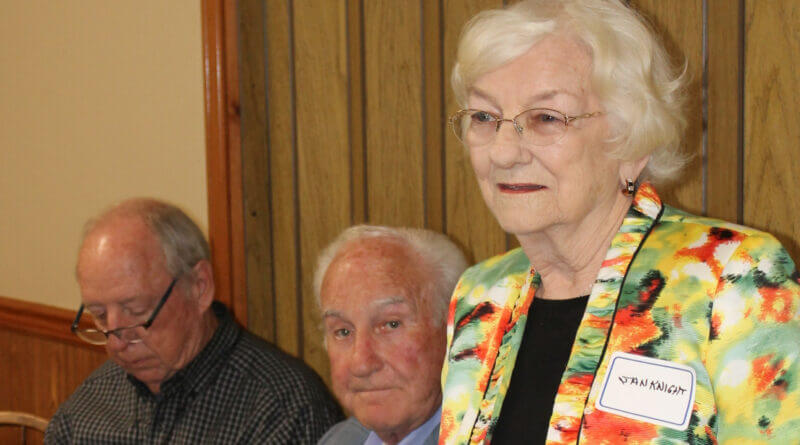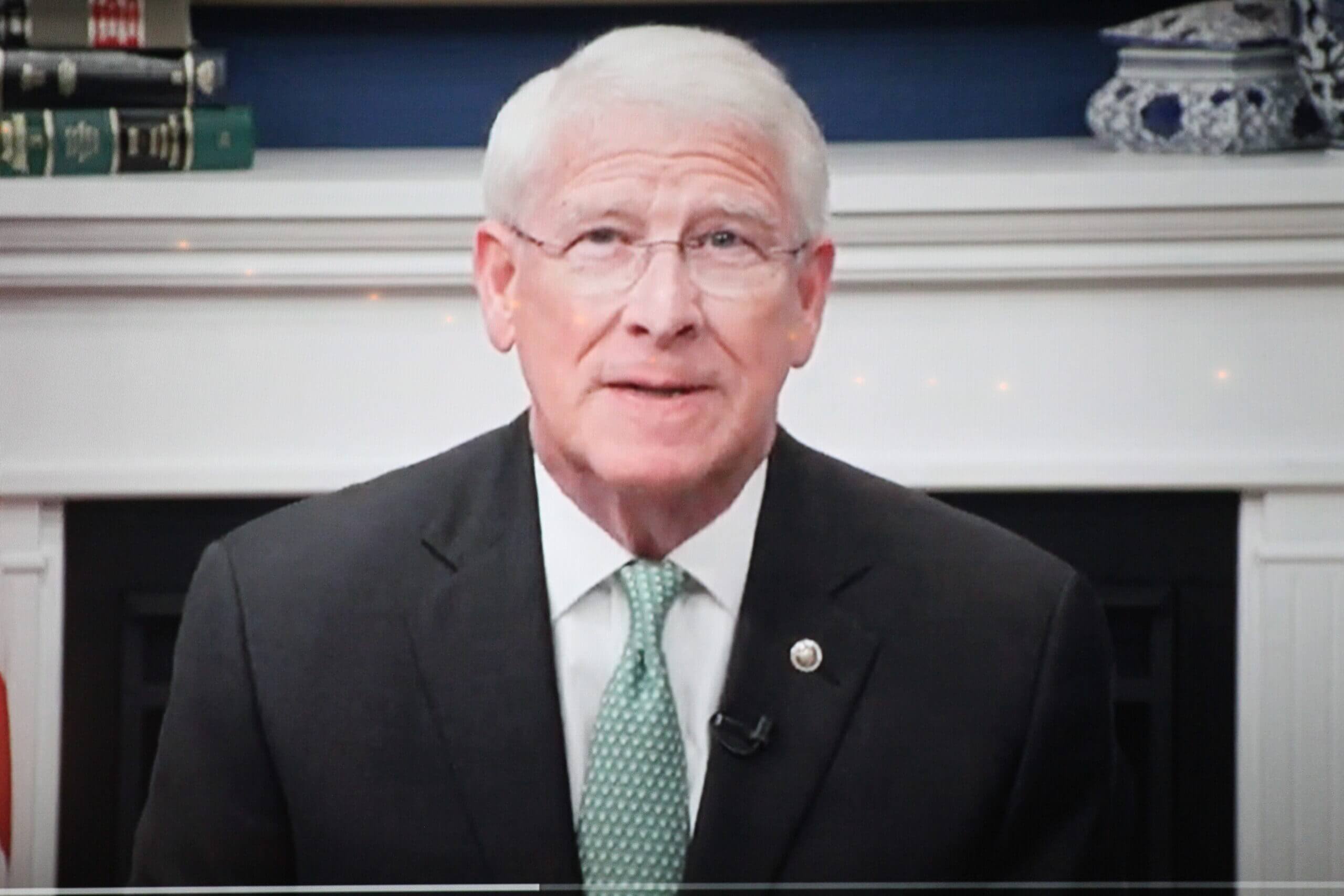Opponents pleased that PERS Board bill dies in Senate committee
Local retired educators group among vocal opposition to change in board makeup
Photo: DeSoto County Retired Education Personnel Association Pres. Jan Knight was joined by (l.) Dr. Randy McCoy, long-standing PERS State Board member, and (center) District II REPA Rep. Milton Kuykendall at the March 21st REPA meeting to learn about House Bill 1590 and how it will affect the Public Employees Retirement System. Dr. McCoy was the keynote speaker and is a former Supt. of Education for the Tupelo schools. (Courtesy photo)
A bill that would have radically changed the makeup of Mississippi’s Public Employees Retirement System (PERS) Board was not advanced in a state Senate committee Tuesday, April 2. The action effectively killed the bill from being considered in the Senate for the remainder of the 2024 session as Tuesday was the deadline for bills to leave committee and be advanced to the Senate floor for a vote. Opponents of the decision to not advance the bill were pleased by it.
House Bill 1590 would have remade the membership of the board and rescind a scheduled employer’s contribution increase, set for July. Opponents considered the new structure of the PERS board to be more politically impacted with less representation from PERS membership.
The bill had passed the House on a 85-34 vote and was sent to the Senate Government Structure Committee for consideration. The recorded vote on HB 1590 is found on the Mississippi Legislature website.
It was the Senate committee’s chairman, Sen. Chris Johnson, who determined he would not advance the bill, effectively killing it.
House Speaker Jason White expressed disappointment, calling it “irresponsible.”
“Refusing to address the employer’s contribution increase, as recently enacted by the PERS board, will have serious ramifications for our state, our city and county governments, and school districts, potentially resulting in historical tax increases by cities and counties,” Speaker White said. “Over the next three years, and the foreseeable future if no action is taken, the proposed 5-10 percent increase requested to fund PERS will also have the effect of limiting government services, and eliminating state and local government employees.”
Much of the opposition had to do with the new makeup of the board. House Bill 1590 would replace the current PERS Board with four appointees of the Governor, three appointees of the Lt. Governor, the State Treasurer, the Commissioner of Revenue, and only two elected representatives from the membership.
Local reaction to Sen. Johnson’s decision included comments from DeSoto County Retired Education Personnel Association (REPA) president Jan Knight, who said, “We are so grateful for legislators who stood behind our educators and other public employees across the state invested in the Public Employees Retirement System. We will support you in the future!”
A recent REPA meeting filled a meeting room with concerned opponents to the bill and Knight expressed appreciation to those who worked against HB 1590.
“Now we must make sure that no ‘under the table’ changes are made to other bills containing PERS wording,” Knight said. “Every teacher, firefighter, policeman, highway patrolman, city and government employee will benefit from maintaining their voices on the PERS State Board.”
State Sen. Dr. David Parker (R-Olive Branch), a member of the Government Structure Committee that considered HB 1590, had earlier stated his opposition to the bill and commented that public opposition effectively killed it.
On his Facebook page, Parker said, “Although PERS has serious financial issues that must be considered, I agree that eliminating representation by the members and retirees would not be the best way to address this issue. I prefer getting the board needed help and advice to guide their financial decisions. I am not in favor of the current House bill.”
The DeSoto County REPA stated it was aware that a two percent increase in employers’ contributions to PERS employees is coming in July, but is advocating for the state Legislature to add money into PERS from the state surplus federal COVID fund.
“Our PERS investments were adversely affected by COVID, too; and we should be entitled to a portion of the state’s surplus funds. None of us want to see higher taxes or cuts in hiring or services in our cities and counties,” said Patsy McCrory, secretary of the DeSoto County REPA.






